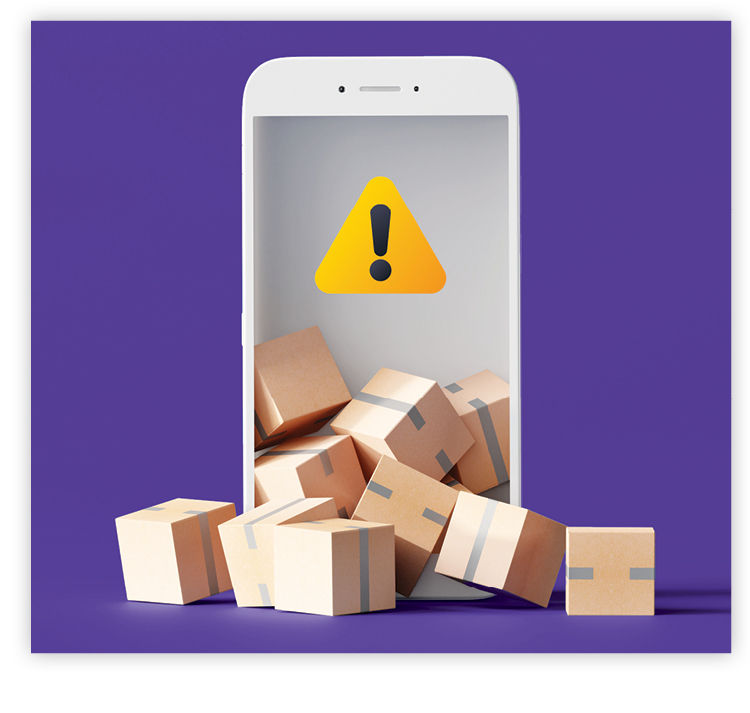Stay Alert – Watch Out for Online Ticket Scams

Scammers are taking advantage of the fact that many concerts and sporting events are replacing paper tickets with digital tickets — which are bought online, downloaded into a phone app, and then presented at the arena gate for scanning. Instead of having to print counterfeit tickets and peddle them on a street corner, scammers can now stay home and post ads for tickets on online marketplaces.
Enthusiastic fans, desperate to get tickets, are losing hundreds or thousands of dollars. Many don’t realize they’ve been scammed until they show up at the venue and can’t get in. Some learn they bought counterfeit tickets. Others have legitimate tickets that the scammer sold to multiple people; in that scenario, the first person who has their ticket scanned at the gate gets in, but the others don’t.
How do scammers get away with it? It’s relatively easy to forge barcodes, QR codes, and logos of legitimate ticket companies using consumer-grade graphic design software. Scammers can also create counterfeit websites that look like the real thing, with a URL that’s only slightly different.
Here’s how to reduce your odds of being scammed:

Scammers are taking advantage of the fact that many concerts and sporting events are replacing paper tickets with digital tickets — which are bought online, downloaded into a phone app, and then presented at the arena gate for scanning. Instead of having to print counterfeit tickets and peddle them on a street corner, scammers can now stay home and post ads for tickets on online marketplaces.
Enthusiastic fans, desperate to get tickets, are losing hundreds or thousands of dollars. Many don’t realize they’ve been scammed until they show up at the venue and can’t get in. Some learn they bought counterfeit tickets. Others have legitimate tickets that the scammer sold to multiple people; in that scenario, the first person who has their ticket scanned at the gate gets in, but the others don’t.
How do scammers get away with it? It’s relatively easy to forge barcodes, QR codes, and logos of legitimate ticket companies using consumer-grade graphic design software. Scammers can also create counterfeit websites that look like the real thing, with a URL that’s only slightly different.
Here’s how to reduce your odds of being scammed:
- For ticket purchases, avoid Facebook Marketplace, Craigslist, and Instagram. The safest way to buy tickets is from the venue, either in person or through its official website.
- Don’t try to buy tickets from an individual unless it’s someone you actually know.
- For a sold-out event, an online reseller (such as StubHub, Vivid Seats, or SeatGeek) may be your only option. Live Nation and Ticketmaster also resell tickets. If you’re not familiar with the resale company, check it out at BBB.org.
- Steer clear of any reseller that won’t accept credit cards and especially those that want payment via gift card, wire transfer, or a peer-to-peer (P2P) payment app. Criminals prefer these payment methods because they’re instant, untraceable, and irreversible.
 Google tricks, also called Easter eggs, are hidden gems designed purely for fun. One of the oldest is the Do a Barrel Roll trick, which makes the Google page spin around a few times before recentering itself properly. To see it, simply type “Do a barrel roll” in the Google Search bar.
Google tricks, also called Easter eggs, are hidden gems designed purely for fun. One of the oldest is the Do a Barrel Roll trick, which makes the Google page spin around a few times before recentering itself properly. To see it, simply type “Do a barrel roll” in the Google Search bar.
 The word “free” gets people’s attention and can cause them to act impulsively. Scammers take advantage of this weakness by sending bulk phishing emails that promise a free gift card if you provide personal information.
The word “free” gets people’s attention and can cause them to act impulsively. Scammers take advantage of this weakness by sending bulk phishing emails that promise a free gift card if you provide personal information.
 In 2022, the Better Business Bureau reported 202 scams related to Amazon Prime and 186 scams that mention Amazon “account deletion, suspension, closure, or locking.” These scams continue to be common, so be suspicious if you receive a message that claims to be from Amazon.
In 2022, the Better Business Bureau reported 202 scams related to Amazon Prime and 186 scams that mention Amazon “account deletion, suspension, closure, or locking.” These scams continue to be common, so be suspicious if you receive a message that claims to be from Amazon.



